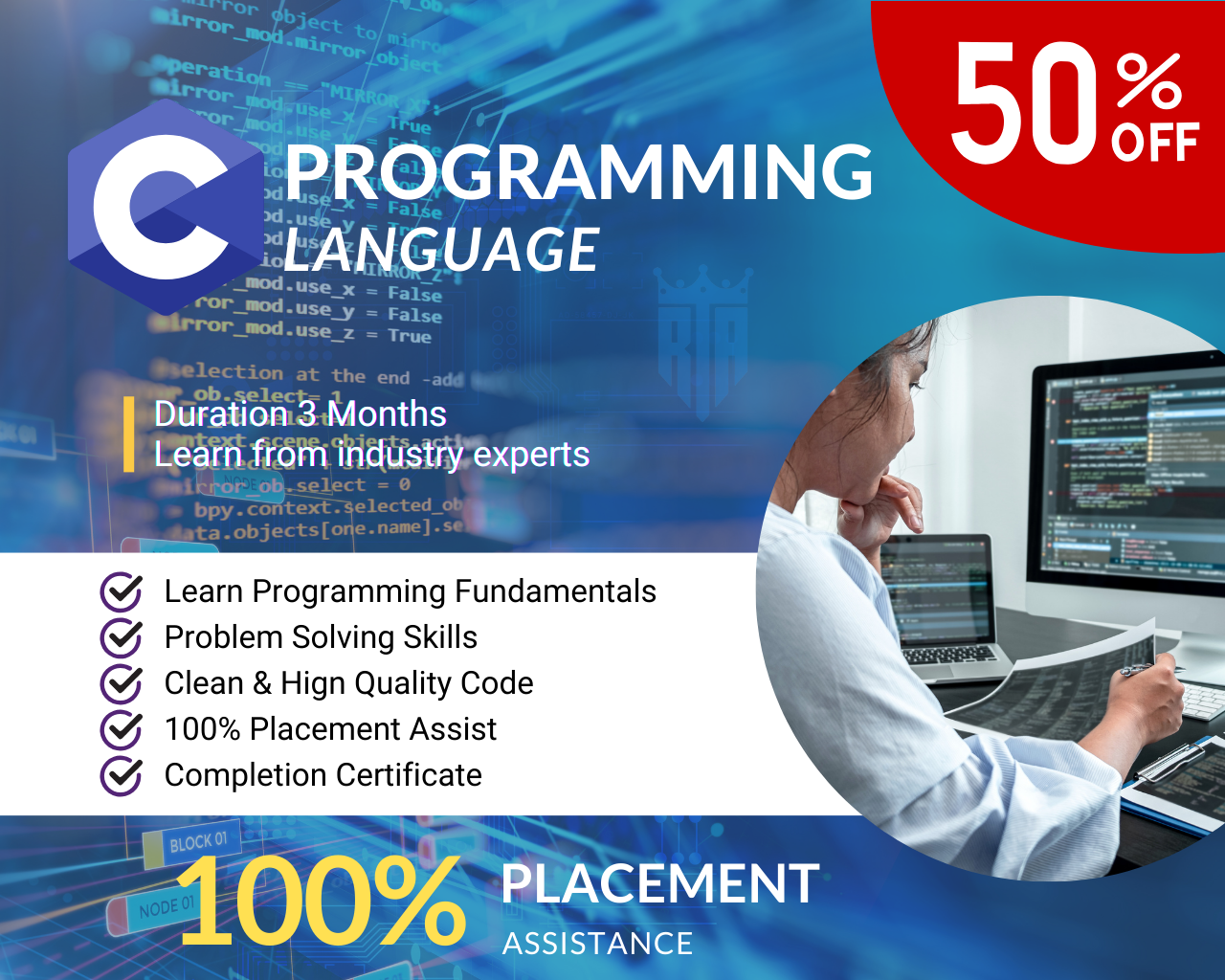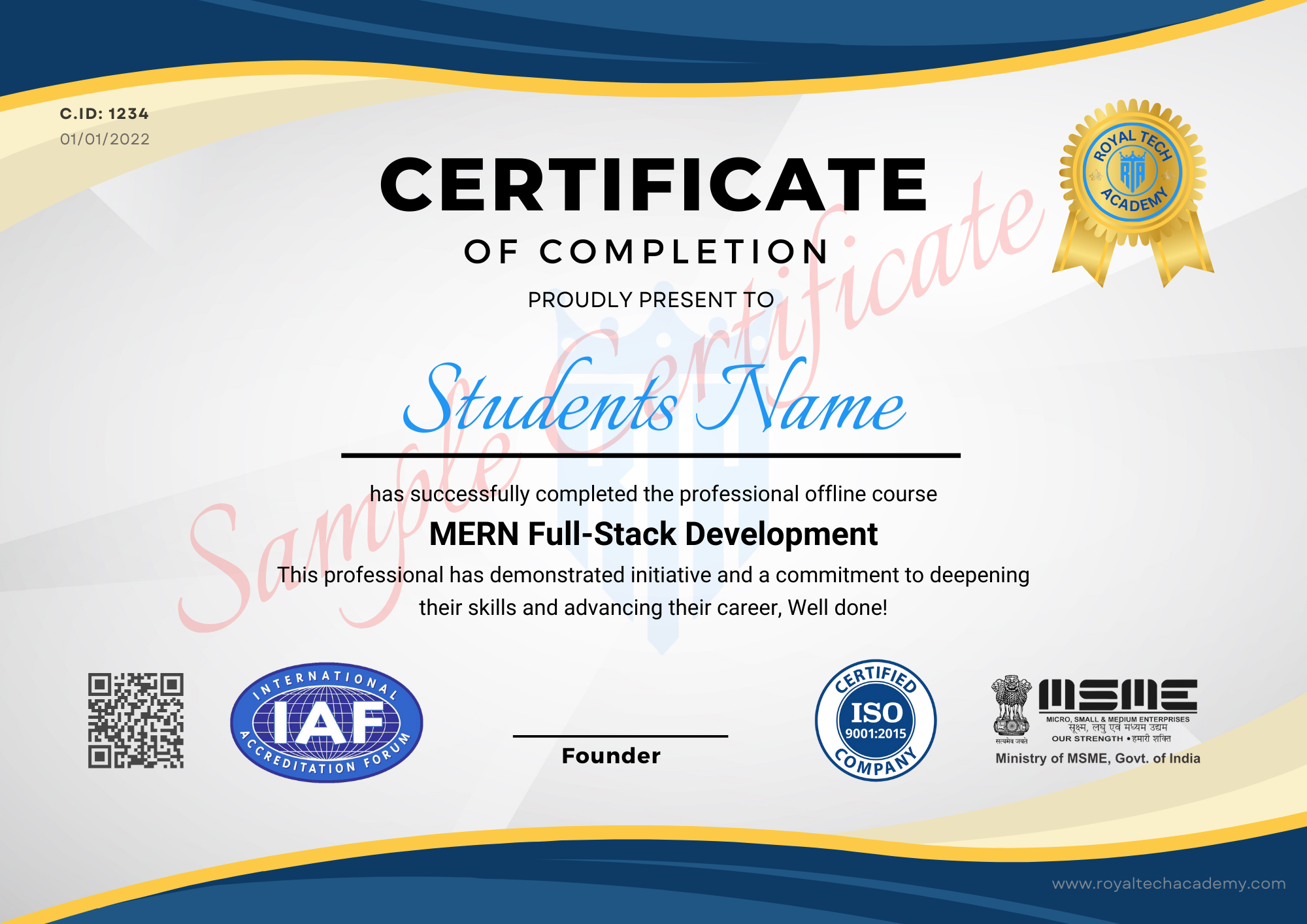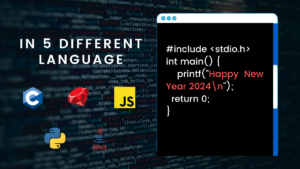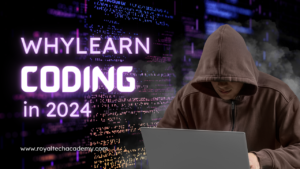
C Programming for beginners - Master C language
Learn Essential Programming Fundamentals. Master programming skills to solve complex problems. C Programming will increase career options. Become a better dev in other languages by learning C. Pointers explained.
3 months at 3 days a week
Fees: ₹ 20,000 10,000
What you’ll learn :
Programming is an increasingly important skill, whether you aspire to a career in software development, or in other fields. This course is the first in the specialization Introduction to Programming in C, but its lessons extend to any language you might want to learn. This is because programming is fundamentally about figuring out how to solve a class of problems and writing the algorithm, a clear set of steps to solve any problem in its class. This course will introduce you to a powerful problem-solving process—the Seven Steps—which you can use to solve any programming problem. In this course, you will learn how to develop an algorithm, then progress to reading code and understanding how programming concepts relate to algorithms.
Building on the course Programming Fundamentals, this course will teach you how to write code by first planning what your program should do—an important approach for novice and professional programmers. You will learn how to compile and run your program, and then how to test and debug it. This course builds on the Seven Steps you have already learned and provides a framework for systematically testing for problems and fixing them, so you can find and fix problems efficiently.
The third course in the specialization Introduction to Programming in C introduces the programming constructs pointers, arrays, and recursion. Pointers provide control and flexibility when programming in C by giving you a way to refer to the location of other data. Arrays provide a way to bundle data by guaranteeing sequences of data are grouped together. Finally, recursive functions—functions that call themselves—provide an alternative to iteration that are very useful for implementing certain algorithms.
The final course in the specialization Introduction to Programming in C will teach you powerful new programming techniques for interacting with the user and the system and dynamically allocating memory. You will learn more sophisticated uses for pointers, such as strings and multidimensional arrays, as well as how to write programs that read and write files and take input from the user. Learning about dynamic memory allocation will allow your programs to perform complex tasks that will be applied in the final part of the specialization project: a Monte Carlo simulation for calculating poker hand probabilities.
Prepare for a coding interview
Prepare for a mock interview
Solve problems using code
Start Learnings
Earn a Completion Certificate
Get ready to boost your resume! Our competition certificate, internationally recognized and AIF ISO 9001-2015 certified, adds a global edge to your skills. Join us – stand out worldwide!


How to print Happy New Year in 5 different languages
How to print Happy New Year in 5 different languages Are you interested in coding? So let us teach you how you can print “Happy New Year 2024” in five different programming languages. This is a

How to Create Personalized Christmas Greetings and Wishes with Christmas Personalised Image Generator
Christmas Personalised Image Generator, a free and easy-to-use online tool that lets you create beautiful and customized Christmas images in minutes. You can use these images to send as e-cards, post on social media, print as posters or make as gifts. The possibilities are endless!

How to Start Coding in 2024 | Beginners guides for learning programming
explore why learning to code is essential for your success, especially if you are a student. We will discuss the benefits of programming, the booming job market, and provide a beginner-friendly roadmap to help you get started on your coding journey

Unlock Your Tech Potential with Royal Tech Academy: Learn More, Earn More!
Discover a wide range of courses, from programming to design and development. Uncover the benefits of our programs and how they can build your career. Elevate your skills and open doors to exciting opportunities.
